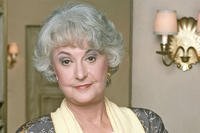When Col. Robert Gould Shaw led his newly formed 54th Massachusetts Regiment down Boston's Beacon Street and off to war, American poet John Greenleaf Whittier described Shaw as "the very flower of grace and chivalry ... he seemed to me beautiful and awful, as an angel of God come down to lead the host of freedom to victory."
Earlier in 1863, Secretary of War Edwin Stanton had decreed that freed black men could join the Army. Shaw's 54th was the first Union regiment formed of black recruits, and its command was such an ambiguous honor that Shaw had at first declined. However, the 25-year-old Shaw was the son of prominent and zealous abolitionists, and their influence convinced him that this colonelcy was his destiny.
A Harvard dropout and budding businessman, Shaw found early in the Civil War that soldiering suited his temperament and gifts. He trained the 54th hard and long, but repaid their efforts with his own: he insisted that his men be issued regular uniforms and, along with them, refused substandard wages (the regiment was compensated with back pay after the war ended).
Less than two months after marching down Beacon Street, Shaw and his 54th were ordered to the beach beneath Fort Wagner, S.C., which guarded the entrance to Charleston, and told to attack. "I want you to prove yourselves," Shaw told his troops on the evening of July 18, 1863. "The eyes of thousands will look on what you do tonight."
Shaw led the attack instead of placing himself in the customary position at the rear. As the 600 men of the 54th Massachusetts stormed Fort Wagner, they were met with heavy shelling, but they kept moving. Shaw neared the top of the parapet shouting "Onward, Fifth-fourth!" and was shot through the heart. He pitched forward into the fort and died. Enemy officers usually were interred with some ceremony, but Confederate soldiers stripped Shaw's body and threw it into a common grave with his 116 fallen soldiers, believing this burial disgraced the young colonel. But his parents said they could hope for "no holier place" for Shaw than to be "surrounded by his brave and devoted soldiers."














